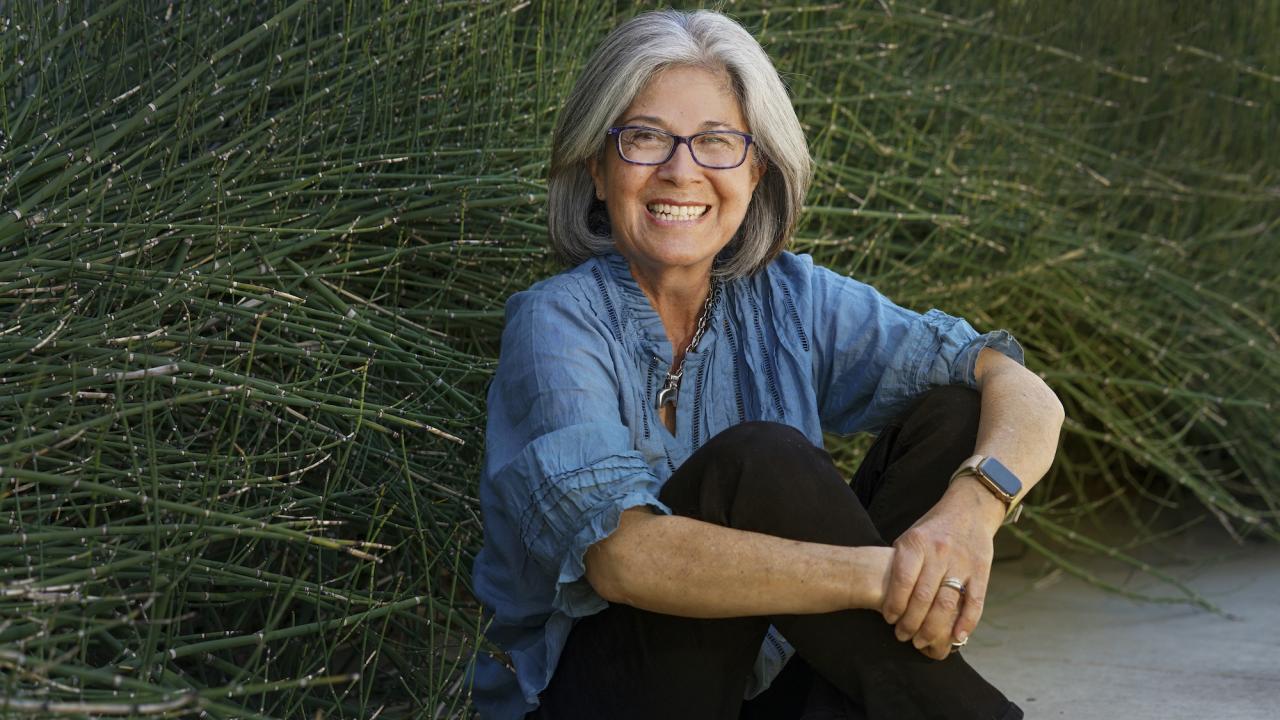
Isabel Montañez Wins UC Davis Teaching Prize
Although she grew up speaking Spanish and French, like many children who immigrated to the United States, Distinguished Professor Isabel Montañez struggled with English in high school and college. One university professor told her she would never graduate, Montañez recalls.
Those difficult experiences inform her interactions with undergraduates at UC Davis. For Montañez, that means respecting every student as an individual and taking time to recognize and support their goals. “She made me feel like a priority even while she was teaching classes, reviewing scientific papers and traveling around the world for research projects,” said former student Daphne Kuta ’19.
Montañez’s commitment to undergraduate learning and development was recognized today (May 4) with the 2021 UC Davis Prize for Undergraduate Teaching and Scholarly Achievement. The $55,000 prize is among the largest of its kind in the country and is funded through philanthropic gifts managed by the UC Davis Foundation. This year, the pandemic prevented the traditional celebratory cake during class. Instead, UC Davis Chancellor Gary S. May popped into Montañez’s Zoom classroom to announce the prize.
Revealing Earth’s climate history
A renowned paleoclimatologist and field geologist, Montañez specializes in reconstructing past climate change in the context of interactions between continents, oceans, the atmosphere and life on Earth. Her research on a major ice age that ended 260 million years ago provides clues for predicting how our climate will respond to anthropogenic gas emissions. More recently, Montañez and her students have teased out a timeline of Northern California’s climate history from cave stalagmites in the Sierra Nevada.
A career spent comparing ancient and modern climate gives Montañez a “four-dimensional view” of climate change, a perspective she is skilled at communicating to students. In a class she created for non-science majors, called “Earth System Science,” Montañez vividly illustrates climate change by linking each lesson to current events and students’ daily lives. “This generation wants to know how they can be part of the solution to today’s problems, and it’s wonderful to help students develop that vision for themselves,” Montañez said.
During this year of remote learning at UC Davis, Montañez flipped her classroom for the Earth systems course. For example, instead of exams, students keep a daily journal relating what they’ve studied to their lives, their future plans and to society. Montañez also hosts learning groups in the morning and evening to accommodate people working from different time zones.
“As the comments from her students make clear, Montañez is an inspiring teacher who is dedicated to reaching students at all levels,” said Ari Kelman, interim dean of the College of Letters and Science. “She is the kind of professor whose work transforms the lives of her students.”
Student evaluations describe Montañez as “a fantastic instructor” who is “incredibly knowledgeable” and “is personally invested in her students and cares that each one understands their impact on the planet.”
Inspiring science
Montañez’s fascination with Earth history was sparked early on, when she and her father discovered rocks filled with trilobite fossils while on a walk. “From then on, he would take me fossil hunting and I fell in love with it,” she said.
She was born in Switzerland and moved to Pennsylvania with her parents when she was 11. Her father, a doctor, spoke Spanish with her but French was her first language. In school, she struggled to adjust to writing and speaking English. “I had a high school teacher who told my mother I would never make it,” Montañez said. But other teachers encouraged her aptitude for math and science, providing opportunities such as summer science camps.
Montañez has paid forward that support many times over, mentoring more than 50 undergraduate and graduate researchers during her career. A believer in teaching with real-world problems, Montañez brings these young geoscientists with her to research locations around the world. She also taught high school students in the California State Summer School in Mathematics and Science (COSMOS) program for many years. “What I love about teaching is the sheer pleasure of watching students discover, of seeing the light bulbs go off,” she said.
A graduate of Bryn Mawr College, Montañez worked at Everett & Associates, an environmental consulting firm, and the Smithsonian National Museum of Natural History prior to pursuing a graduate degree at Virginia Tech in 1983. After earning her doctorate, she spent eight years as faculty at UC Riverside before joining UC Davis as an associate professor in 1998.
Montañez is a UC Davis Chancellor’s Leadership Professor in the Department of Earth and Planetary Sciences, College of Letters and Science. She is a member of the National Academy of Sciences and a fellow of the American Association for the Advancement of Science and the John Simon Guggenheim Memorial Foundation. Her honors include the Jean Baptiste Lamarck Medal from the European Geophysical Union, the Geological Society of America Laurence L. Sloss Award and the Frances J. Pettijohn Medal from the Society for Sedimentary Geology.
About the undergraduate teaching prize
Established in 1986, the UC Davis Prize for Undergraduate Teaching and Scholarly Achievement was created to honor faculty who are both exceptional teachers and scholars. The winner is selected based on the nominations of other professors, research peers, representatives from the UC Davis Foundation Board of Trustees and students. See a list of all the recipients since the award’s inception.
— Becky Oskin, content strategist in the College of Letters and Science
